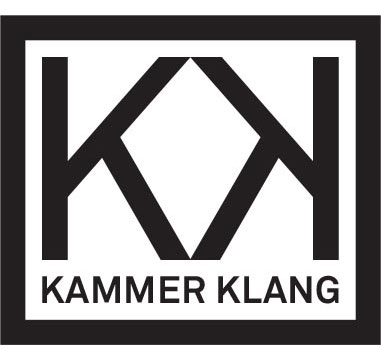Cafe Oto, 18-22 Ashwin Street, London E8 3DL
£7 advance / £6 Oto members / £9 door / £5 students
Buy tickets here
Season tickets available here
Student ticket price only available on the door. Please email us to reserve your tickets, as there will be no ticket sales on the door if a show sells out. Student ID will be needed at entry.
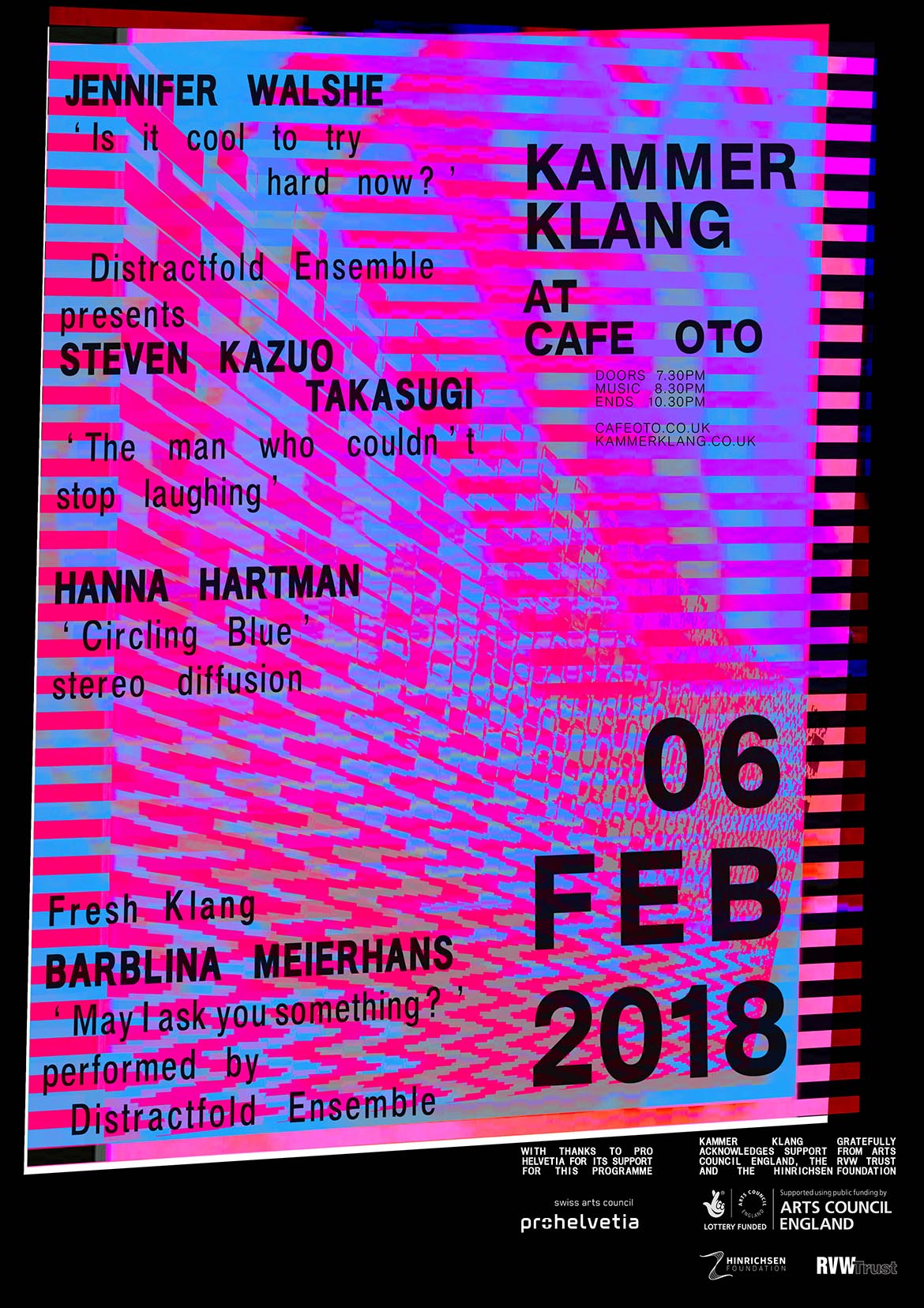
Programme
19.30 Doors
20.30 Programme begins
22.30 Programme ends
Fresh Klang: Barblina Meierhans, May I ask you something? (2017), for clarinet, violin, cello, piano and electric guitar, 15′ (UK premiere)
Hanna Hartman, Circling Blue (2010), for tape, 8′
Steven Kazuo Takasugi, The man who couldn’t stop laughing (2009-14), music theater for chamber ensemble, electronic amplification, and playback, text by Karl Kraus, 18′
Distractfold Ensemble
Rocío Bolaños, clarinets
Kasia Zimińska, violin
Alice Purton, cello
Mark Knoop, piano
Daniel Brew, electric guitar
Linda Jankowska, Mauricio Pauly & Sam Salem, artistic direction
Linda Jankowska, stage direction and coaching for Takasugi
Mauricio Pauly, technical direction
Sam Salem, sound projection for Takasugi and Hartman
/
Jennifer Walshe, Is it cool to try hard now? (2016)
Programme notes
Steven Kazuo Takasugi
The Man Who Couldn’t Stop Laughing (2009-14), music theater for chamber ensemble, electronic amplification, and playback, text by Karl Kraus, 18’35”
Based on the dark sideshows of Coney Island’s amusement parks in the early part of the 20th century, The Man Who Couldn’t Stop Laughing is a meditation on virtuosity, freak shows, entertainment, spectacle, business, and the sacrifices one makes to survive in the world. A cycle of four aphorisms by the Viennese satirist Karl Kraus (1874-1936) is embedded as a subtext running through the work. They are as follows:
1. “Ein Gourmet sagte mir: was die Crême der Gesellschaft anlange, so sei ihm der Abschaum der Menschheit lieber.”
(A gourmet once told me: he preferred the scum of the earth to the cream of society.)
2. “Wenn Tiere gähnen, haben sie ein menschliches Gesicht.”
(When animals yawn, they have a human face.)
3. “Der Fortschritt macht Portemonnaies aus Menschenhaut.”
(Progress makes wallets from human skin.)
4. “In einen hohlen Kopf geht viel Wissen.”
(Much knowledge fits in a hollow head.)
Table of Contents
Part I: “The Destinies of Hallucinations”
Movement I: “The Man Who Couldn’t Stop Laughing”
A. Lead-in 0:00
B. “The Man Who Couldn’t Stop Laughing” 0:08
C. Kraus Aphorism I: “Ein Gourmet Sagte Mir…” 1:32
D. “The Man Who Couldn’t Stop Laughing, Part II” 3:21
E. Interlude I: “A Queasy Ascent” 6:03
F. Kraus Aphorism II: “Wenn Tiere Gähnen…” 7:15.5
G. Kraus Aphorism III: “Der Fortschritt…” 8:29
Movement II: “Sodom by the Sea” or “Mildew of an Inner Room of the Eternal Return of the Same”
H. Interlude II: “Premonition: Morning after the Inferno (with View of Sea)” 9:52
I. “The Contortionist” 14:52
J. Kraus Aphorism IV: “In Einen Hohlen Kopf…” 16:08
K. “The Sideshow Giant” or “The Obese Genius” 16:29
L. Interlude III: “Night’s Glimmering City” 17:19 (end: 18:35)
Jennifer Walshe
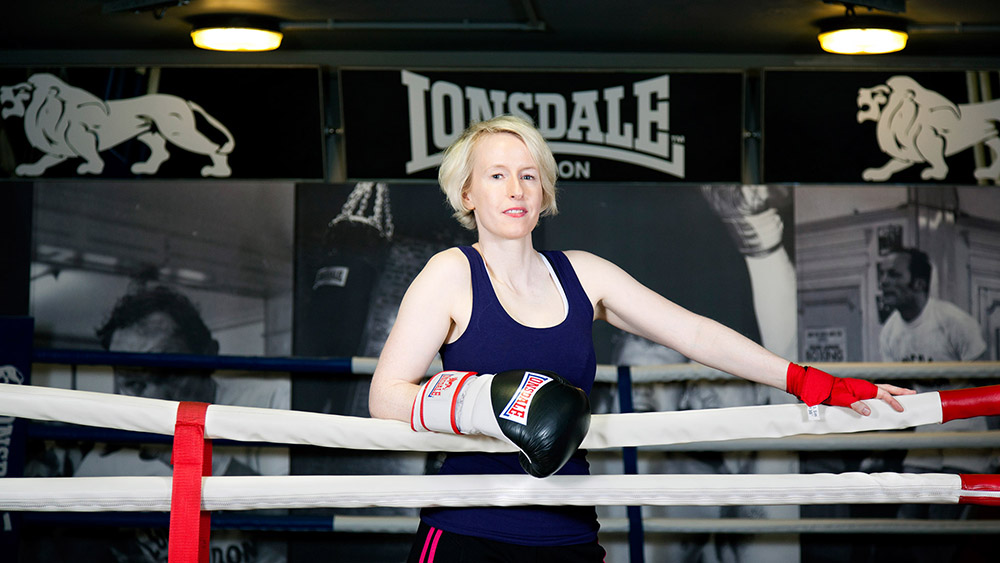
Jennifer Walshe is a composer, vocalist and performer. Her work has been performed all over the world by ensembles such as Alter Ego, ensemble recherche, Ensemble Resonanz, Apartment House, Crash Ensemble, Con Tempo Quartet, The Rilke Ensemble, The Irish Chamber Orchestra, Musica Nova Consort, and The Scottish Chamber Orchestra. In addition to her activities as a composer, Jennifer frequently performs as a vocalist, specialising in extended techniques.
‘The most original compositional voice to emerge from Ireland in the past 20 years’ – The Irish Times
‘The wild girl of Darmstadt’ – Frankfurter Rundschau (Cafe OTO)
Distractfold Ensemble
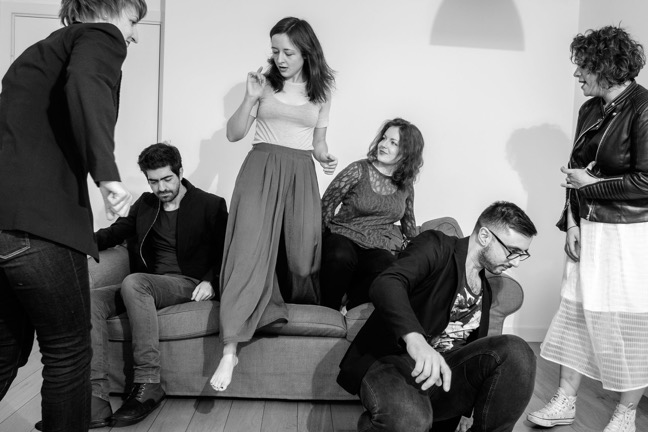
photograph by Dimitri Djuric
Barblina Meierhans
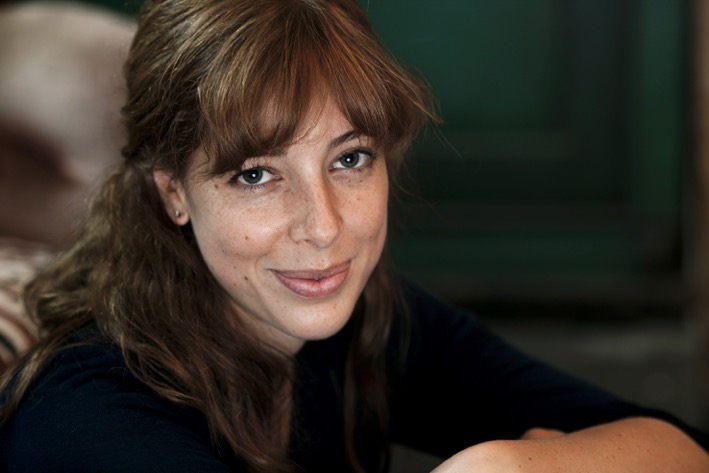
photograph by Ona Pinkus
Barblina Meierhans (*1981, Switzerland) creates works in the disciplines of instrumental composition, music theatre and installations. She reduces rather than elaborates and seeks to discover the essence of a sound-related situation. It is in this specific regard that their farthest-reaching abstract links are forged.
Barblina Meierhans studied composition, violin, viola and experimental musictheatre at Zurich and Bern University of Arts and Dresden University of Music. She has been inspired in her composition work by Mark Andre, Manos Tsangaris, Franz Martin Olbrisch, Georges Aperghis and Xavier Dayer. Further studies in transdisciplinarity.
Steven Kazuo Takasugi
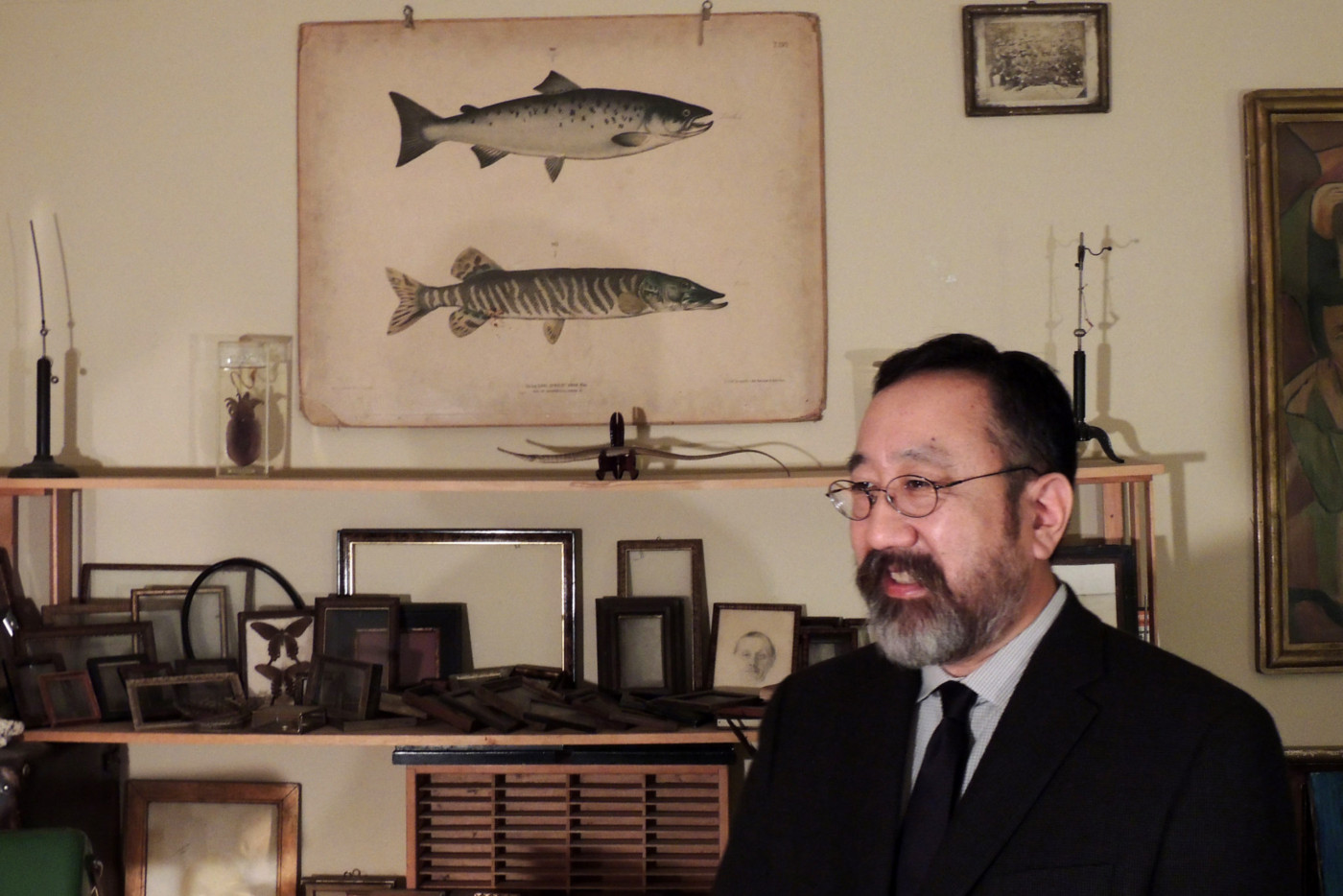
photograph by Zvia Fridman
Steven Kazuo Takasugi, born 1960 in Los Angeles, is a composer of electro-acoustic music. This involves the collecting and archiving of recorded, acoustic sound samples into large databases, each classifying thousands of individual, performed instances collected over decades of experimentation and research, mostly conducted in his private sound laboratory. These are then subjecting to computer-assisted, algorithmic composition, revised and adjusted until the resulting emergent sound phenomena, energies, and relationships reveal hidden meanings and contexts to the composer. Against this general project of fixed-media is the addition of live performers, described as an accompanying project: “When people return . . .” This relationship often creates a “strange doubling” playing off the “who is doing what?” inherent with simultaneous live and recorded media: a ventriloquism effect of sorts. @stakasugi
Hanna Hartman
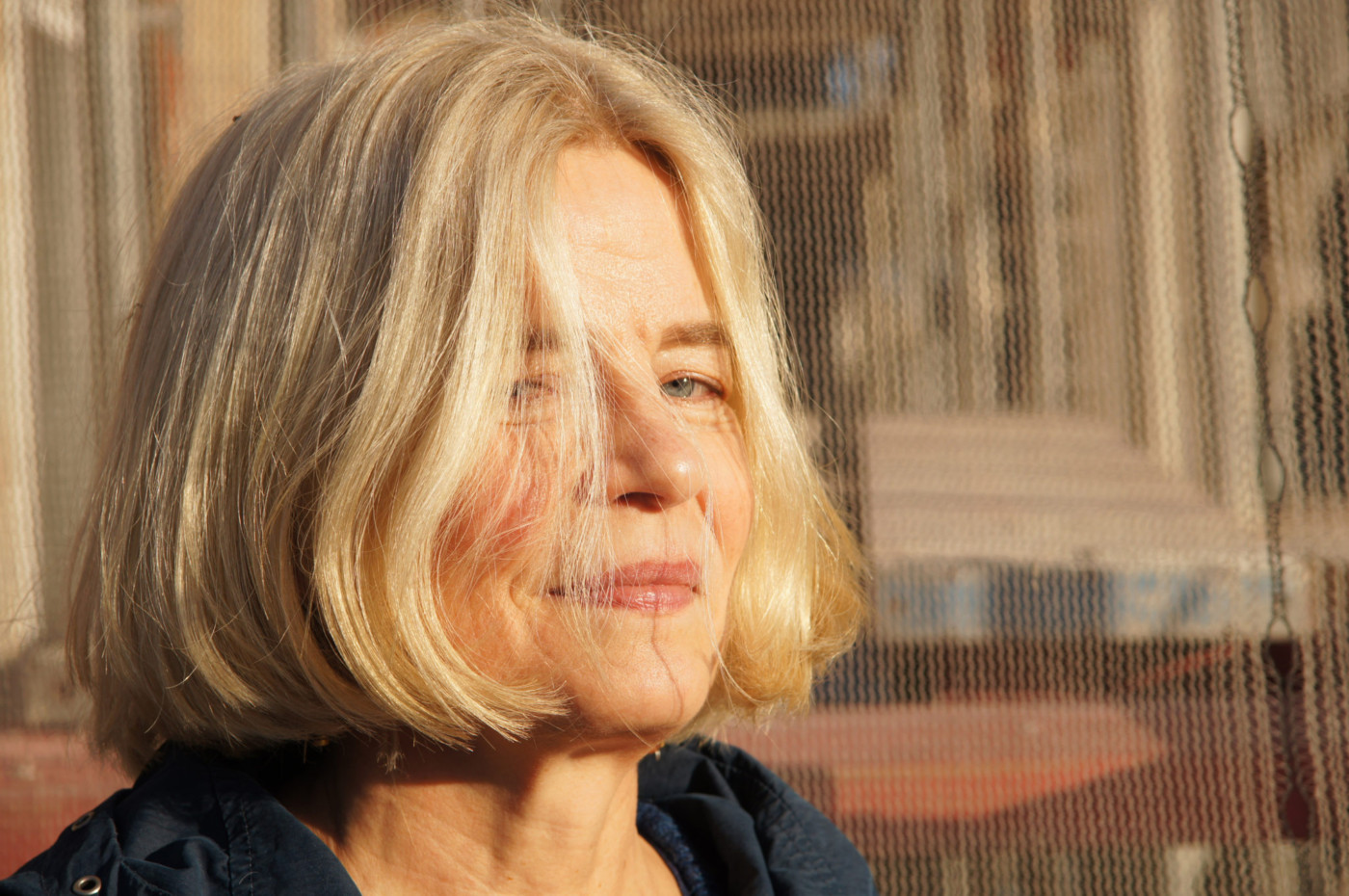
Hanna Hartman is a Swedish sound artist living in Berlin. She has been awarded the Prix Europa 1998, the Karl-Sczuka-Prize 2005, the Phonurgia Nova Prize 2006 & 2016 and the Rosenberg Prize 2011. From 2007-08 she was composer-in-residence for Swedish Radio. Her work for Cut & Splice is a world premiere and a major new commission for Distractfold, with whom she has a long-term working relationship, in which amplified everyday objects reveal their hidden sonorities in unexpected, beautiful, intimate ways.
